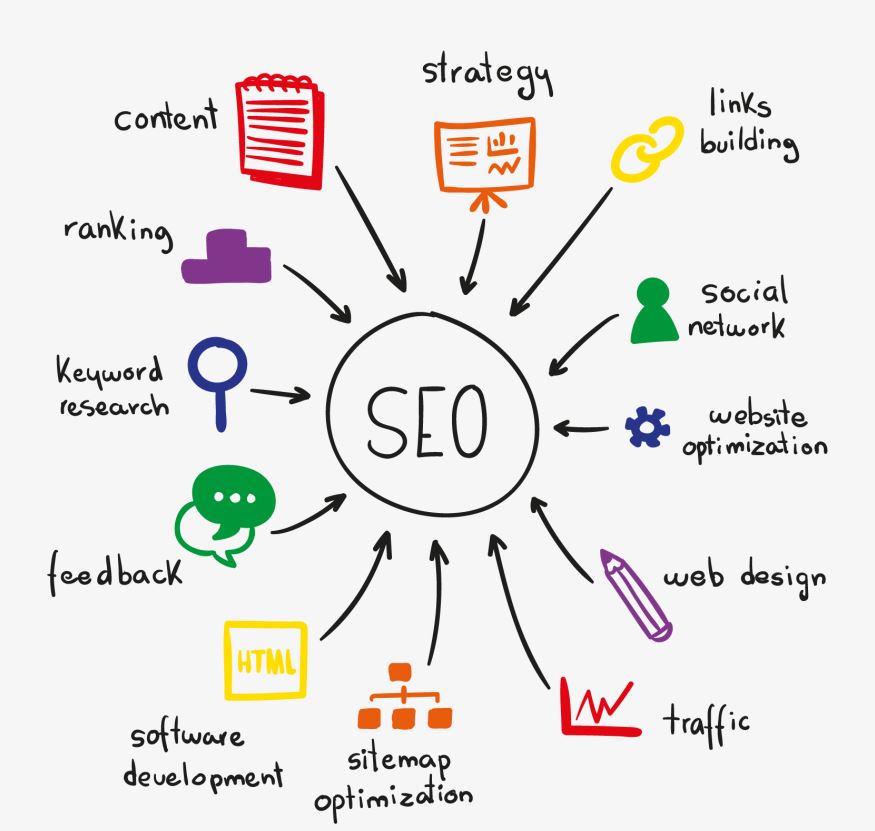Visibility has been the main challenge hindering the success of small businesses up to date. Having a fantastic business and eye-catching website can be of no importance if the potential customers cannot find you. That’s what necessities the need for Search Engine optimization. Search Engine Optimization is an art and science of improving your ranking on the Search Engine Results Page (SERP).
Google uses search algorithms to find websites that have quality and informative content, thereby improving its ranking on search engines. Google keeps on tweaking its search algorithms several times annually. This is a clear indication that amazing SEO is not something that is attained instantly; it is a continuous process that requires dedication and commitment.
Publishing Relevant Content
Quality content is the secret to improve your website rankings on search engines, and nothing else can substitute informative content. You can increase your website traffic by publishing relevant content for your target audience, as this will enhance your site authority as well as relevance. To realize this, you need to perfect your web writing skills.
Keywords
Every page on your website should have a unique keyword phrase. Take your time to define the phrases that the visitor can use to search for a specific page on your website.
Multiple Keyword Phrases
It’s never easy for a webpage to realize search engine ranking for several keyword phrases unless they are similar. A single page can rank multiple keyword phrases as long as they are somehow related, for example, Business jobs’ and business careers.’
If you intend to rank several keyword phrases with your website, you will be required to create separate web pages for the keyword phrases you are targeting.
Content
Besides the page URL, title, and headings, content is very crucial when it comes to search engine rankings. Your keyword phrase should appear several times on the page, not forgetting the opening and closing paragraphs.
These keyword phrases should be highlighted to make it easy for the reader to identify them. You can use the available writing styles to highlight them, such as bold, italics, and even heading tags. You should neglect good writing for SEO. What you need to understand is that pages are written specifically for the reader and not SEO.
Keeping your Content Up to date
Content is of much importance to the ranking of any plumbing & HVAC website. Keeping your content up-to-date is one of the ways that is used to determine how relevant the site is, so it is necessary to keep it fresh. You should set time to audit your content and make the required updates.
Consistency
To improve the SEO rankings on your website, you have to show consistency when it comes to publishing content on your blog. This builds trustworthiness among the visitors, and they will always visit your site because they believe that is the only place they can find answers to what they are looking for. To lure more visitors into your website, you should be consistently publishing new content, as this will create a good impression among your visitors.
You should overlook the consequences of not updating outdated or underperforming content. Visitors don’t like reading the same thing week in week out, and that’s why publishing new material is very crucial.
Readable Content
The content on your website should be easily readable. Your content should be in short and precise paragraphs, as this is what users want. Visitors are no longer interested in an endless block of content, and this may even turn them away from your website. You should strive to keep your content as short as possible while retaining the meaning.
The sentences should be short, and a paragraph should have no more than five lines. Readers find such content friendly, inviting, and easy to understand. Long paragraphs discourage the readers before they even begin to read them.
Provide Accurate Contact Information
Providing correct contact details is a trust factor search engine uses when ranking a website. You should provide your contact details so that users can reach out to you when in need. Users tend to lose trust in a business that does not have contact details as they think such businesses are no longer legit. Always include your phone number, location, and email address so that visitors can reach out to you easily.
The discussed above are some of the tricks on how to improve your website’s SEO.



